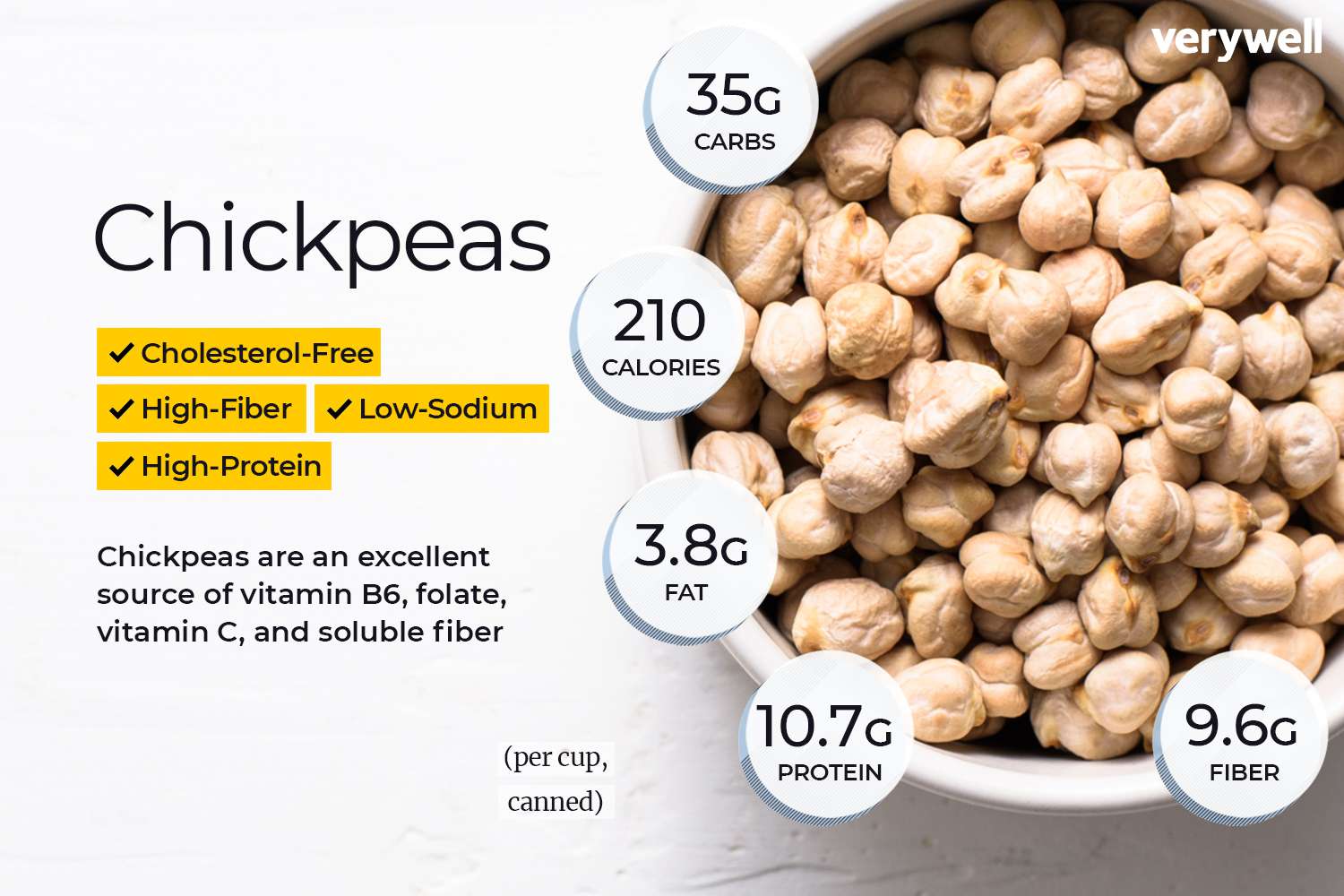What You Need to Know About the Health Benefits of Chickpeas
In the realm of nutrition, few foods can rival the versatility, flavor, and nutritional prowess of chickpeas, also known as garbanzo beans. These legumes, native to the Mediterranean and Middle Eastern regions, have been cherished for millennia for their culinary appeal and health-promoting properties. From savory stews to creamy dips, chickpeas have earned their place as a staple ingredient in cuisines around the world. Yet, beyond their gastronomic allure, chickpeas boast an impressive array of health benefits of chickpeas that make them a true superfood. You can also read this Why Psyllium Husk is the Ultimate Secret for Weight Loss
Understanding the Nutritional Composition of Chickpeas
Before delving into the specific health benefits of chickpeas, it’s essential to understand their nutritional profile. Chickpeas are a rich source of macronutrients, micronutrients, and bioactive compounds that contribute to overall health and well-being.
Macronutrients
Protein
Chickpeas are an excellent plant-based source of protein, making them an ideal option for vegetarians, vegans, and anyone looking to reduce their consumption of animal products. A one-cup serving of cooked chickpeas provides approximately 15 grams of protein, which is comparable to the protein content found in meat and dairy products.
Carbohydrates
While chickpeas contain carbohydrates, the majority of these carbohydrates come from complex carbohydrates, such as starch and fiber. This complex carbohydrate profile results in a gradual release of glucose into the bloodstream, providing sustained energy and preventing spikes in blood sugar levels.
Fiber
Chickpeas are renowned for their high fiber content, with a one-cup serving providing approximately 12.5 grams of dietary fiber. This fiber is a combination of soluble and insoluble fiber, which promotes digestive health, regulates bowel movements, and helps maintain a healthy weight by promoting satiety.
Micronutrients
Vitamins
Chickpeas are a good source of several vitamins, including folate, vitamin K, vitamin B6, and vitamin C. Folate is essential for DNA synthesis and cell division, while vitamin K plays a crucial role in blood clotting and bone health. Vitamin B6 is involved in over 100 enzymatic reactions in the body, including protein metabolism and neurotransmitter synthesis. Vitamin C is a powerful antioxidant that supports immune function and collagen synthesis.
Minerals
Chickpeas are rich in minerals such as iron, magnesium, phosphorus, potassium, and zinc. Iron is vital for oxygen transport, energy production, and immune function, while magnesium plays a role in muscle and nerve function, blood sugar regulation, and bone health. Phosphorus is essential for bone formation, kidney function, and cell signaling, while potassium helps maintain fluid balance, nerve transmission, and muscle contractions. Zinc is involved in immune function, wound healing, and DNA synthesis.
Bioactive Compounds
In addition to macronutrients and micronutrients, chickpeas contain various bioactive compounds with antioxidant and anti-inflammatory properties. These compounds include flavonoids, polyphenols, saponins, and phytosterols, which have been linked to reduced inflammation, improved heart health, and lower risk of chronic diseases such as cancer and diabetes.
Exploring the Health Benefits of Chickpeas
Now that we’ve established the nutritional foundation of chickpeas, let’s explore the specific health benefits associated with their consumption:
Heart Health
Chickpeas have been shown to promote heart health through several mechanisms. Their high fiber content helps lower LDL (bad) cholesterol levels by binding to cholesterol in the digestive tract and facilitating its excretion from the body. Additionally, chickpeas contain potassium, a mineral that helps regulate blood pressure by counteracting the effects of sodium and promoting vasodilation. By reducing LDL cholesterol levels and maintaining healthy blood pressure, chickpeas can lower the risk of cardiovascular diseases such as heart attack and stroke.
Digestive Health
The fiber content of chickpeas supports digestive health by promoting regular bowel movements, preventing constipation, and reducing the risk of diverticular disease and colon cancer. Additionally, the prebiotic fibers found in chickpeas serve as food for beneficial gut bacteria, promoting a healthy balance of microbial flora in the gut and supporting immune function.
Blood Sugar Control
Chickpeas have a low glycemic index, meaning they cause a gradual rise in blood sugar levels compared to high-glycemic foods. This slow and steady release of glucose into the bloodstream helps prevent spikes in blood sugar levels and insulin resistance, making chickpeas an excellent choice for individuals with diabetes or those at risk of developing the condition.
Weight Management
The combination of protein and fiber in chickpeas promotes satiety and reduces hunger, making them an effective component of weight management and appetite control strategies. By keeping you feeling full for longer periods, chickpeas can help prevent overeating and support weight loss efforts when consumed as part of a balanced diet.
Bone Health
Chickpeas contain several nutrients that are essential for bone health, including calcium, magnesium, phosphorus, and vitamin K. These nutrients play a crucial role in bone formation, mineralization, and maintenance, reducing the risk of osteoporosis and fractures.
Incorporating Chickpeas into Your Diet
With its exceptional nutritional profile and numerous health benefits, chickpeas are a valuable addition to any diet. Here are some delicious and creative ways to incorporate chickpeas into your meals:
Hummus
Whip up a batch of homemade hummus using cooked chickpeas, tahini, garlic, lemon juice, and olive oil. Enjoy it as a dip for raw vegetables, spread it on whole grain toast, or use it as a sandwich filling.
Salads
Add cooked chickpeas to salads for an extra boost of protein, fiber, and flavor. Combine chickpeas with leafy greens, chopped vegetables, herbs, and a tangy vinaigrette for a refreshing and nutritious meal.
Curries and Stews
Incorporate chickpeas into curries, stews, and soups for a hearty and satisfying meal. Chickpeas pair well with spices such as cumin, coriander, turmeric, and paprika, adding depth and complexity to dishes.
Roasted Chickpeas
Toss cooked chickpeas with olive oil and your favorite spices, then roast them in the oven until crispy. Enjoy them as a crunchy snack or sprinkle them over salads and grain bowls for added texture and flavor.
Conclusion
Chickpeas are not only delicious and versatile but also offer a wide range of health benefits that can support overall well-being. From promoting heart health and digestive function to aiding blood sugar control and weight management, the nutrients and bioactive compounds found in chickpeas make them a true superfood. By incorporating chickpeas into your diet regularly, you can nourish your body and enjoy the numerous advantages that this humble legume has to offer. So why not embrace the health benefits of chickpeas and embark on a journey to better health and vitality today?














Post Comment